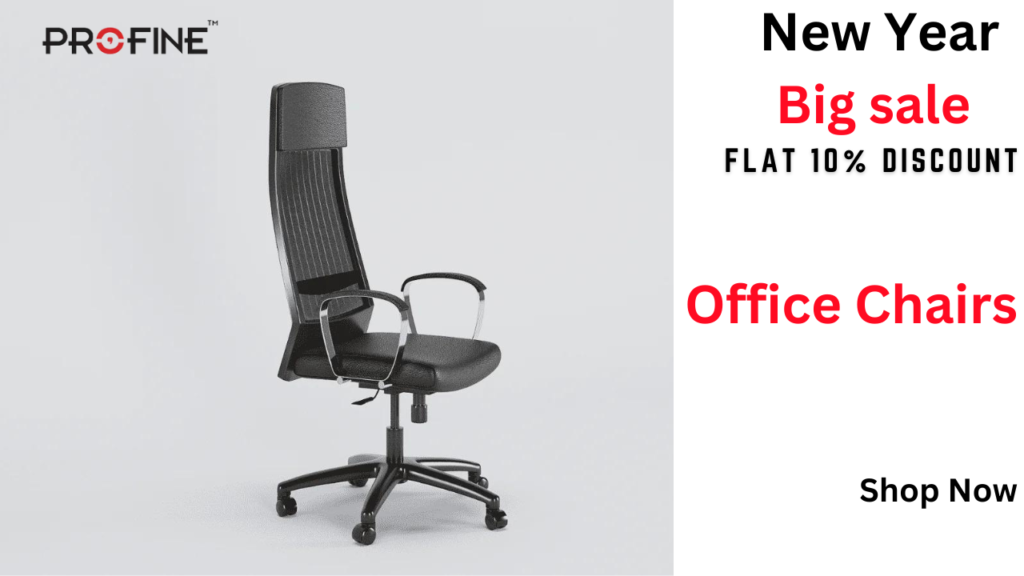1. Introduction
In an era where technology continues to reshape the way we work, the traditional office environment is undergoing a remarkable transformation. The convergence of biometrics and commercial furniture is revolutionizing the workplace experience, bringing forth a new wave of innovation that’s hard to ignore.
Looking for: Office Furniture shops in Lahore.
2. The Evolution of Office Furniture
From the classic cubicles of the past to the ergonomic designs of today, office furniture has always adapted to the changing needs of businesses and employees. However, the infusion of biometric technology marks a significant leap forward, redefining furniture’s role beyond mere aesthetics.
3. What is Biometric Office Furniture?
Biometric office furniture incorporates advanced technologies such as fingerprint scanners, facial recognition, and even voice authentication into everyday workplace items like desks, chairs, and cabinets. These elements add an extra layer of security and convenience, seamlessly integrating into the work routine.
4. Enhancing Security and Access Control
One of the foremost reasons for the surge in biometric office furniture is the heightened need for security. Traditional methods of access control are being replaced by biometric solutions, ensuring that only authorized personnel can access sensitive areas.
5. Elevating Employee Experience and Comfort
Biometric furniture goes beyond security; it also focuses on enhancing the overall employee experience. Smart chairs that adjust to individual preferences, standing desks that remind you to change postures – these innovations prioritize employee well-being and comfort.
6. Streamlining Workspace Efficiency
Time-consuming tasks like logging into systems or finding the right desk can hinder productivity. Biometric branded Office furniture streamlines these processes, creating a seamless workflow that minimizes disruptions and maximizes efficiency.
7. Addressing Health and Wellness
In the wake of the pandemic, health and wellness have taken center stage. Biometric furniture can monitor vital signs, reminding employees to take breaks or maintain proper posture, thus promoting a healthier work routine.

8. Sustainability and Eco-Friendly Design
Companies are also considering the environmental impact of their operations. Biometric furniture, often designed with sustainable materials, aligns with eco-friendly initiatives, appealing to socially conscious consumers.
9. Factors Driving the Adoption
As companies embrace biometric office furniture, several key factors are propelling this trend.
Security Concerns
With data breaches becoming more prevalent, companies are turning to biometric solutions to safeguard sensitive information.
Technological Advancements
The advancements in biometric technology have made implementation smoother, more accurate, and less intrusive.
Competitive Edge
Adopting innovative furniture can differentiate businesses in a competitive market, attracting top talent and forward-thinking clients.
10. Challenges to Consider
While biometric furniture offers numerous benefits, there are challenges to navigate.
Integration Complexities
Integrating biometric systems with existing office infrastructure can be complex and may require expert support.
Cost Implications
Implementing biometric solutions can have initial cost implications, requiring companies to assess their budgetary considerations.
Privacy Considerations
Collecting biometric data raises privacy concerns that need to be carefully addressed to maintain employee trust.
11. Biometric Furniture in Different Industries
The application of biometric furniture extends across various industries.
Corporate Offices
Enhancing security and efficiency in day-to-day operations is a priority for corporate environments.
Healthcare Facilities
In healthcare, biometric furniture ensures only authorized personnel access sensitive patient information.
Hospitality Sector
Hotels are adopting biometric furniture for guest rooms, providing convenience and security.
12. Selecting the Right Biometric Furniture
Choosing the right biometric furniture involves considering several factors.
Understanding Needs
Identify specific needs and goals that biometric furniture can address in your workspace.
Compatibility with Workspace
Ensure that chosen solutions fit seamlessly within your office layout and workflow.
User-Friendly Interface
Opt for furniture with intuitive interfaces to minimize the learning curve for employees.
13. The Future of Office Furniture
The trajectory of office furniture points toward a future where technology, comfort, and sustainability coalesce seamlessly.
14. Conclusion
The fusion of biometric technology and commercial furniture is reshaping workplaces. From security enhancements to improved employee well-being, the adoption of biometric office furniture reflects a commitment to innovation and a drive for a more efficient, secure, and comfortable work environment.
Searching for: Lahore Office furniture.
FAQs
1. Are biometric furniture solutions expensive? Biometric furniture solutions may have initial costs, but the long-term benefits in terms of security and productivity often outweigh the investment.
2. Can biometric furniture be customized to individual preferences? Yes, many biometric furniture options offer customization features to cater to individual comfort and preferences.
3. Is biometric data stored securely? Reputable biometric solutions ensure the highest level of data security and adhere to privacy regulations.
4. How do I know if biometric furniture is compatible with my office setup? Consulting with experts who specialize in biometric technology integration can help you determine compatibility.
5. What industries can benefit most from biometric office furniture? Industries such as finance, healthcare, and hospitality, where security and efficiency are paramount, can benefit significantly from biometric furniture.





